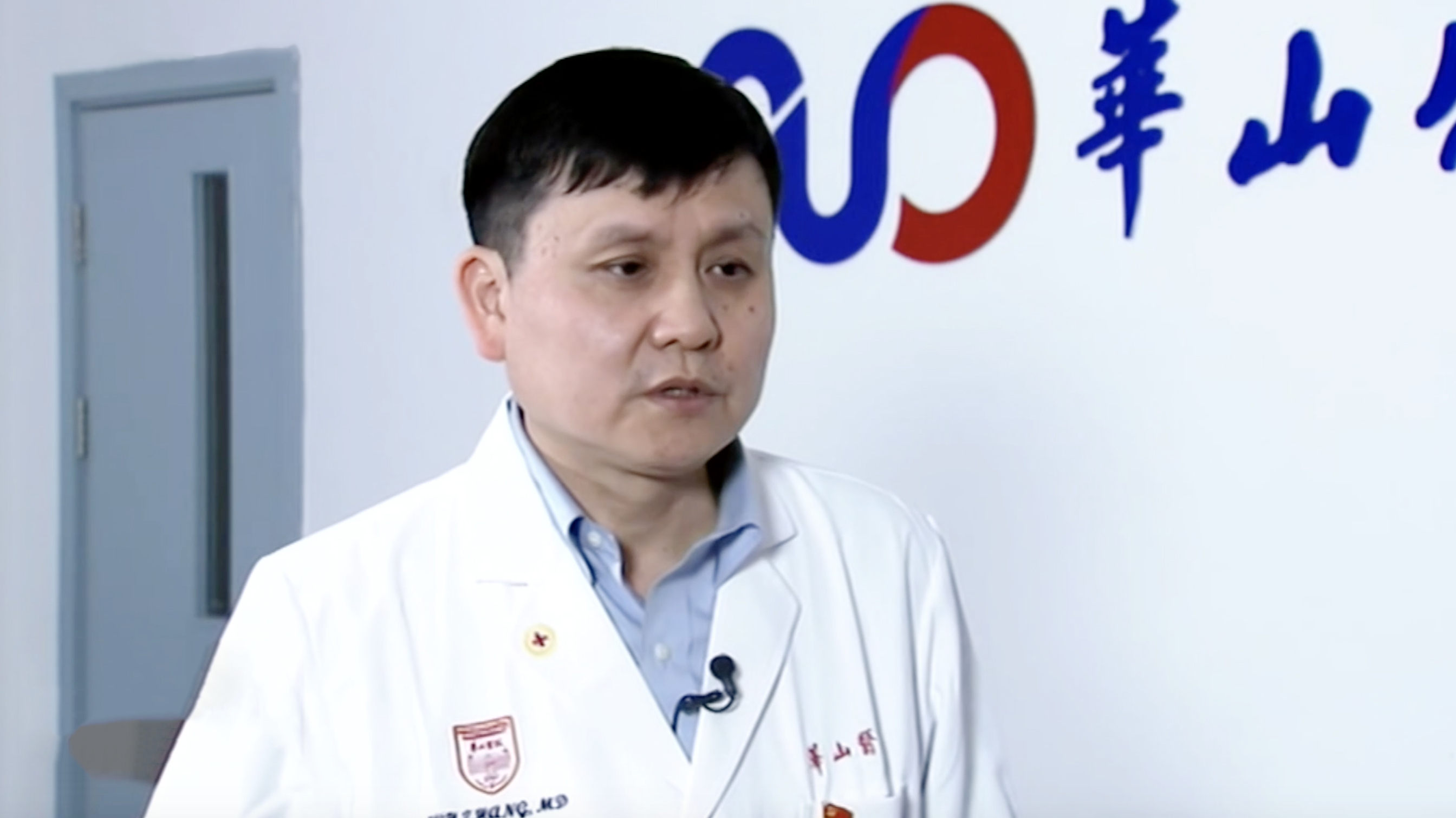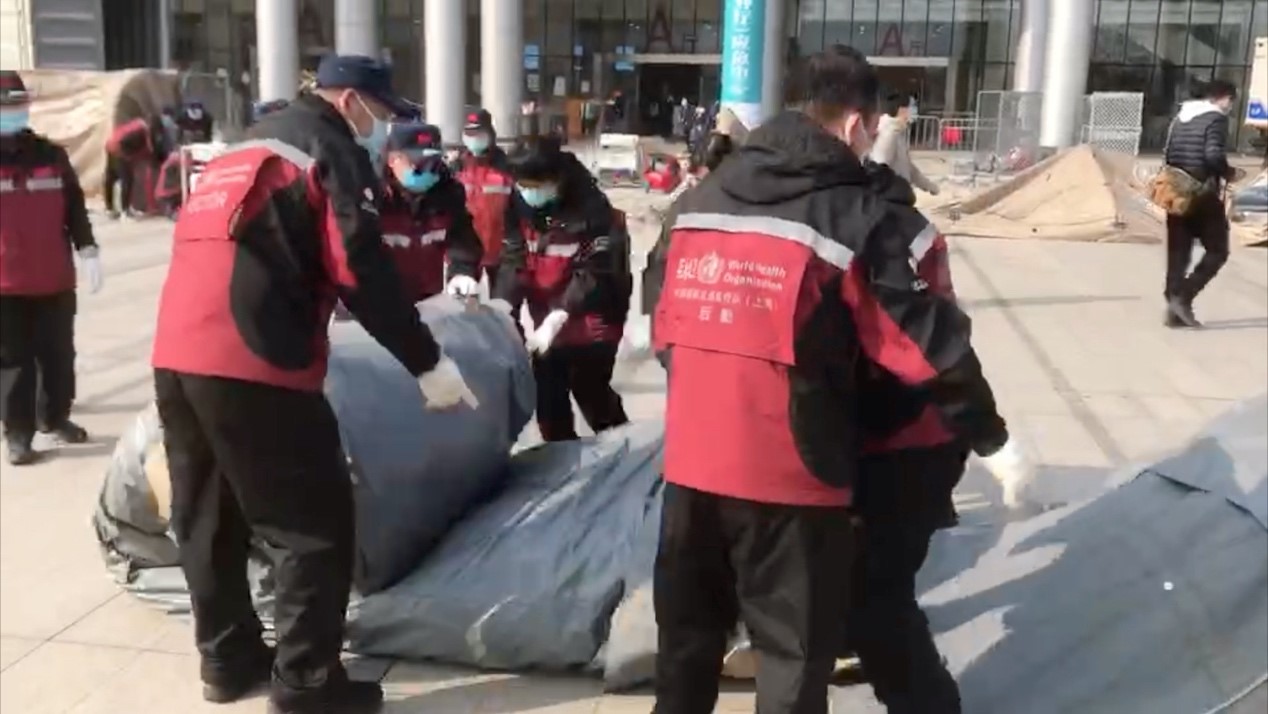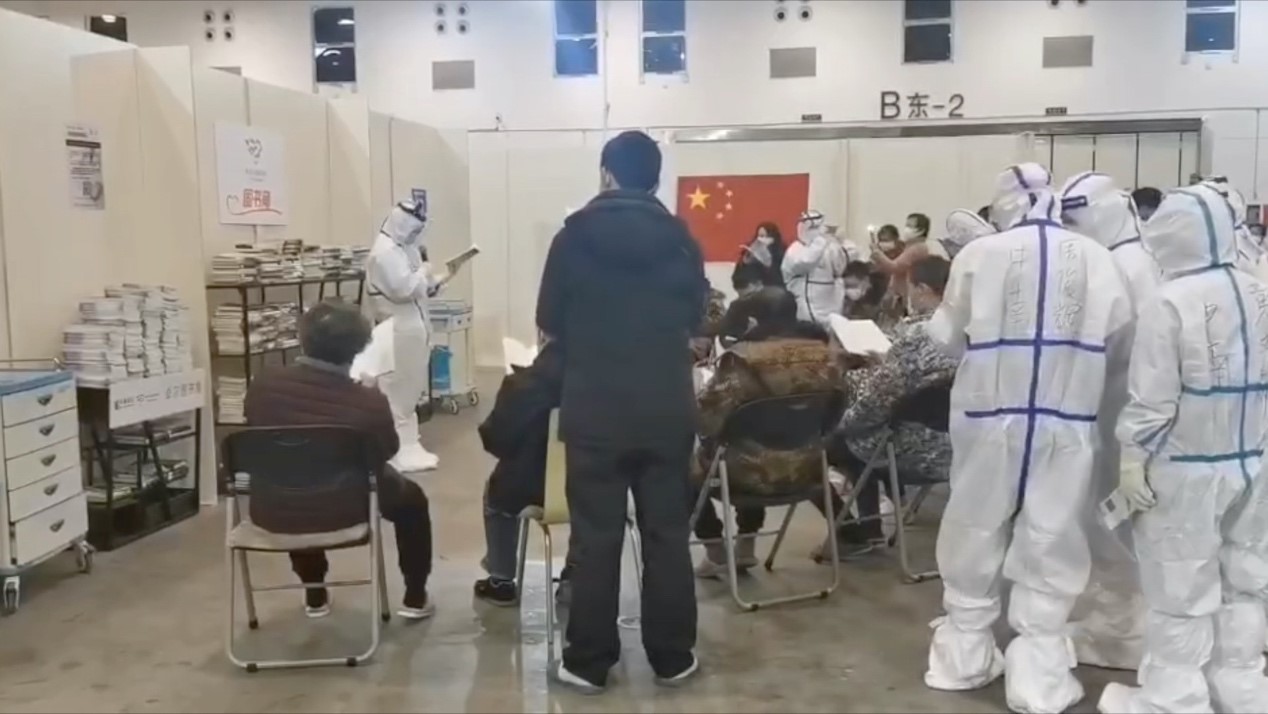02:37

Wuhan will long be remembered as the battlefield where China's toughest medical professionals fought and conquered COVID-19. It was a battle won for the people, by the people. And those who did the fighting came away with unforgettable experiences they now share and impart with colleagues and the world.
Sun Guixin, the executive leader of Shanghai East Hospital's emergency medical team, arrived in Wuhan on February 4 and he was tasked with building a temporary stadium hospital. "These facilities played a vital role in alleviating hospital bed shortages," said Sun.
Many other medical professionals say this has been one of the most important practices, since COVID-19 has a distinctively high infection rate. "We had a peculiar situation. The seriously-ill only account for about five percent of patients, while 80 percent are mild cases. This means the virus can effectively jump between different people," said Zhang Wenhong, director of the department of infectious disease at Huashan Hospital.

Doctor Sun's team started building a temporary hospital in Wuhan on February 5. /Photo provided by Shanghai East Hospital
Doctor Sun's team started building a temporary hospital in Wuhan on February 5. /Photo provided by Shanghai East Hospital
This meant building facilities quickly to expand the capacity to isolate patients from communities was top priority. When doctor Sun started his work in Wuhan, he was faced with another challenge. "Doctors from different hospital worked together, but we had different protocols. For example, one doctor looked at a CT scan and gave particular medical advice, but another doctor might have made a completely different suggestion," said Sun. And that led to the next most important task: establish a shared protocol among doctors from different regions.
Being diagnosed with COVID-19 was also a traumatizing experience for many. Head nurse Gao Caiping, also a member of the medical team, detailed the fighting spirit, the frustrations and hopes of her patients in a book. "Many were scared and didn't want to communicate with each other very much at first. I asked them to write down how they felt, and I took many of the pictures. Nurses were stressed out too, 20 to 30 percent of them had to rely on sleeping pills to rest," said Gao.

Shanghai East Hospital's medical team held regular book readings. /Photo by Shanghai East Hospital
Shanghai East Hospital's medical team held regular book readings. /Photo by Shanghai East Hospital
The medical team published a booklet on alleviating psychological trauma caused by the virus. "We handed them out for free to our patients in Wuhan," said Sun.
These collective lessons and experiences will be invaluable to China's public health history.